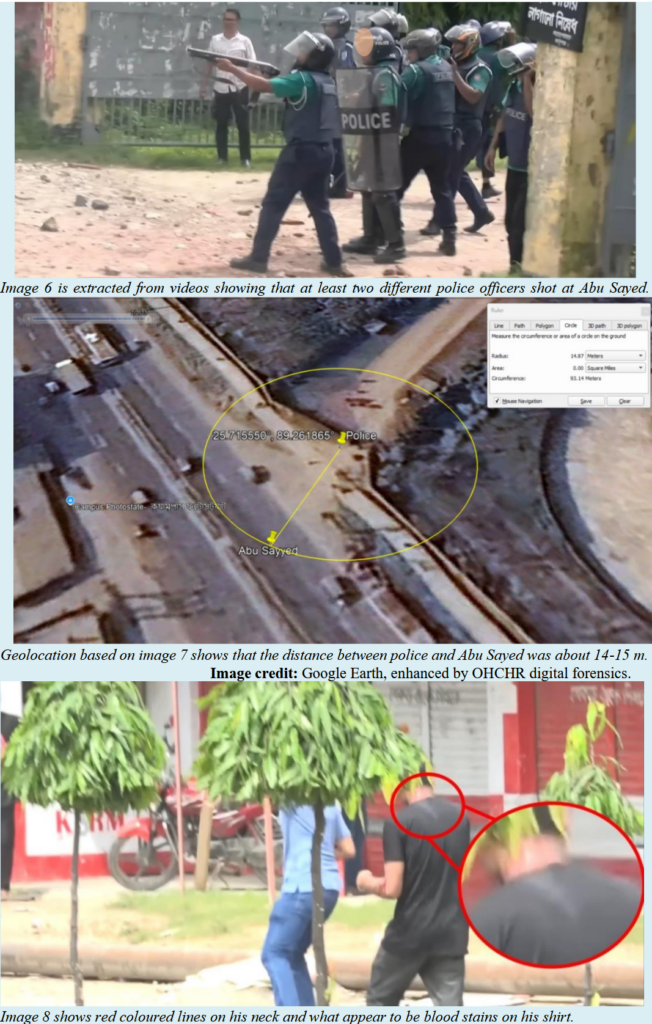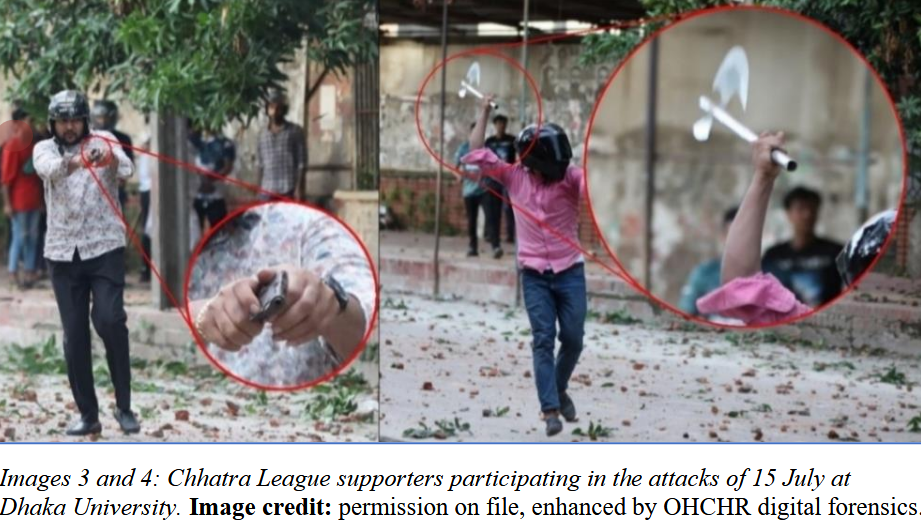Bangladesh’s former Government, security forces, and political allies systematically engaged in serious human rights violations during last year’s student-led protests, a UN Human Rights Office report has found.
The report raises concerns about possible crimes against humanity and calls for urgent criminal investigations.
The protests, which erupted following a High Court decision to reinstate a public service quota system, were rooted in broader grievances over political corruption and economic inequality.
The report found that in response, the former Government employed violent measures to suppress dissent, leading to widespread killings, arbitrary arrests, and torture.
Systematic state violence
Citing testimony from senior officials and other evidence, the report estimates that between 1 July and 15 August 2024, as many as 1,400 people were killed, mostly by Bangladesh’s security forces.
Among those killed, 12-13 percent were children. Thousands more were injured. Bangladesh Police reported the deaths of 44 officers.
UN Human Rights Chief Volker Türk condemned the violence, stating: “The brutal response was a calculated and well-coordinated strategy by the former Government to hold onto power in the face of mass opposition.”
He added that the report found “reasonable grounds to believe hundreds of extrajudicial killings, extensive arbitrary arrests and detentions, and torture were carried out with the knowledge, coordination, and direction of political leadership and senior security officials.”
The report details patterns of state forces deliberately killing or maiming protesters, including instances of people being shot at close range.
Among the cases examined was that of Abu Sayed, who was filmed challenging police at a protest at Begum Rokeya University in Rangpur.
Forensic analysis confirmed that he was shot at least twice with shotguns loaded with metal pellets, likely from about 14 metres away. The report concluded that he was the victim of a deliberate extrajudicial killing.

Targeted violence against women and children
Women, including protest leaders, faced arbitrary arrests, torture, and gender-based violence, the report states. Physical assaults and threats of rape were used to deter women from participating in the demonstrations.
Children were also targeted. In one case, a 12-year-old protester in Dhanmondi died from internal bleeding after being hit with 200 metal pellets.
In another case, a six-year-old girl in Narayanganj was killed by a bullet to the head while watching a protest from a rooftop. A 12-year-old boy who was shot on 5 August described police firing “everywhere like rainfall” and witnessing at least a dozen dead bodies.
Security forces also allegedly denied or obstructed medical care for injured protesters.
The report documents instances where patients were interrogated, their fingerprints collected, and hospital CCTV footage seized, seemingly to track protesters and conceal evidence of state violence.

Retaliatory violence and ongoing impunity
As the former Government lost control, retaliatory violence against Awami League supporters, police, and journalists intensified.
Attacks targeted Hindus, Ahmadiyya Muslims, and indigenous groups from the Chittagong Hill Tracts. While around 100 arrests have been made in connection with these attacks, the report states that many perpetrators still enjoy impunity.
At the request of the Chief Advisor of Bangladesh’s Interim Government, Mohammed Yunus, the UN dispatched a team in September 2024 to investigate the events. The Interim Government cooperated with the inquiry, granting access and providing documentation.
The report calls for sweeping reforms in Bangladesh’s security and justice sectors, the repeal of repressive laws, and broader political and economic governance changes.
Türk emphasised the need for accountability, stating: “The best way forward for Bangladesh is to face the horrific wrongs committed during this period through a comprehensive process of truth-telling, healing, and accountability.”
The UN Human Rights Office has expressed readiness to assist in the country’s accountability and reform efforts.


